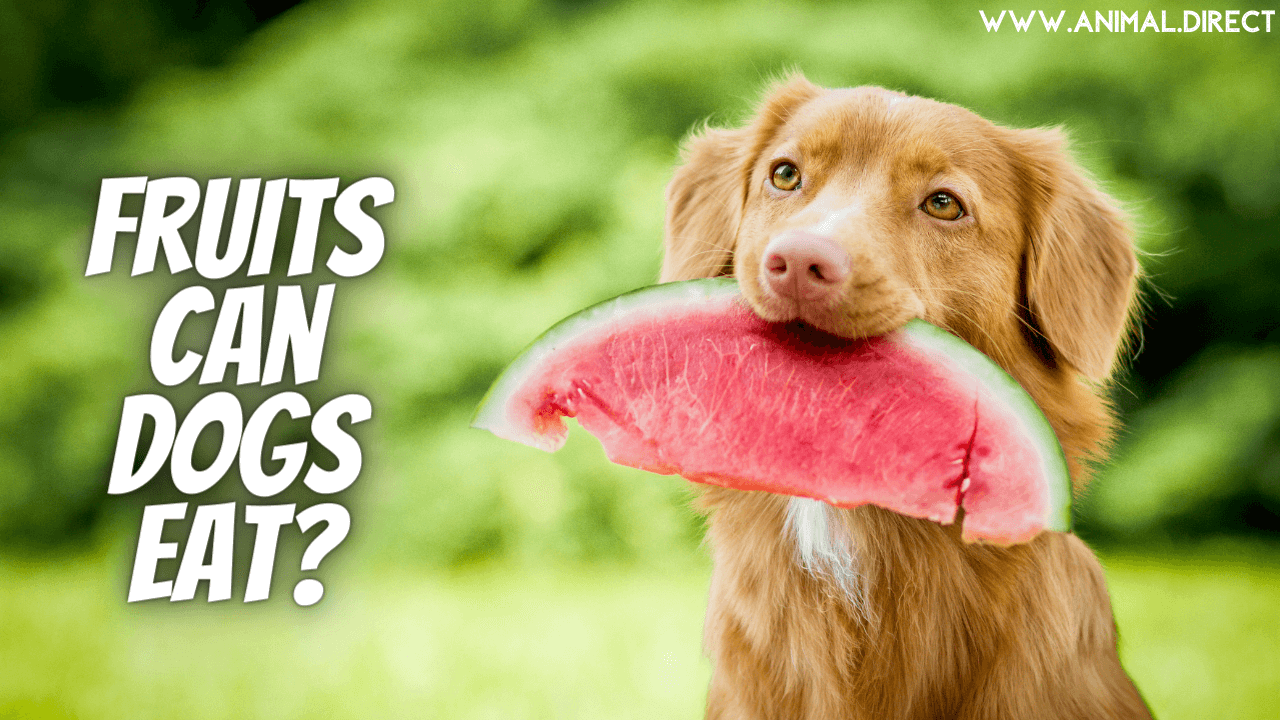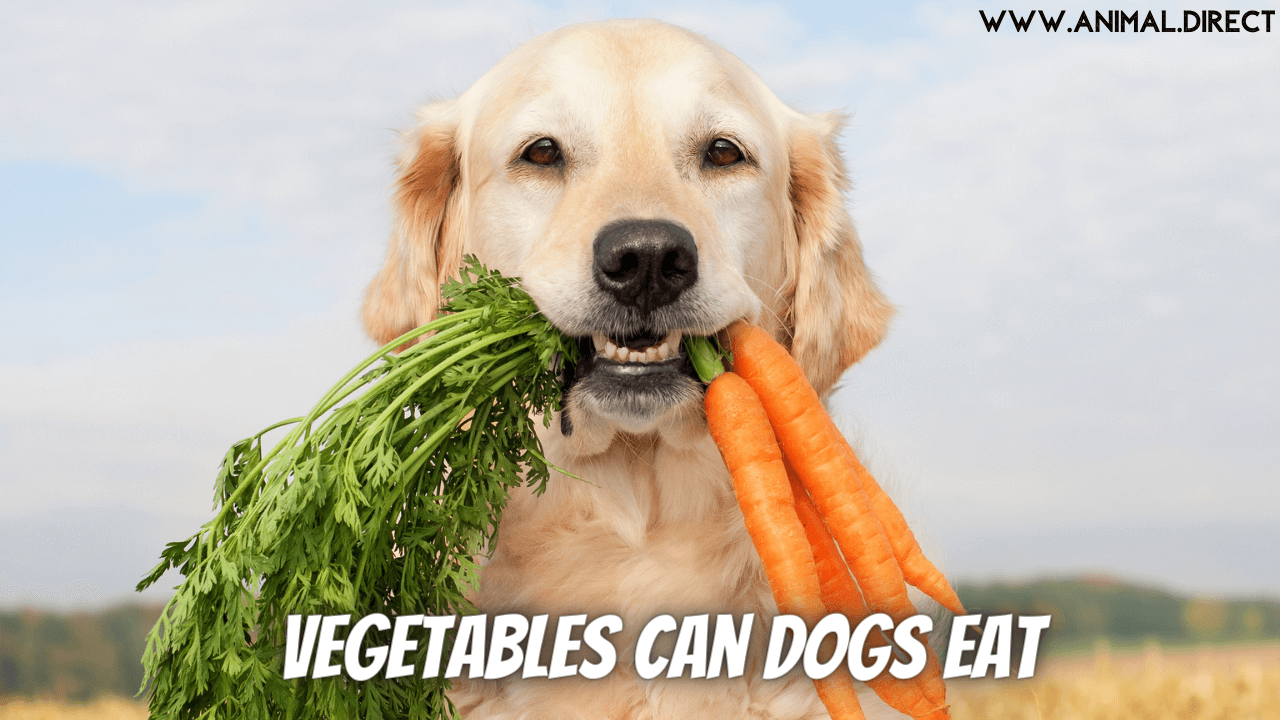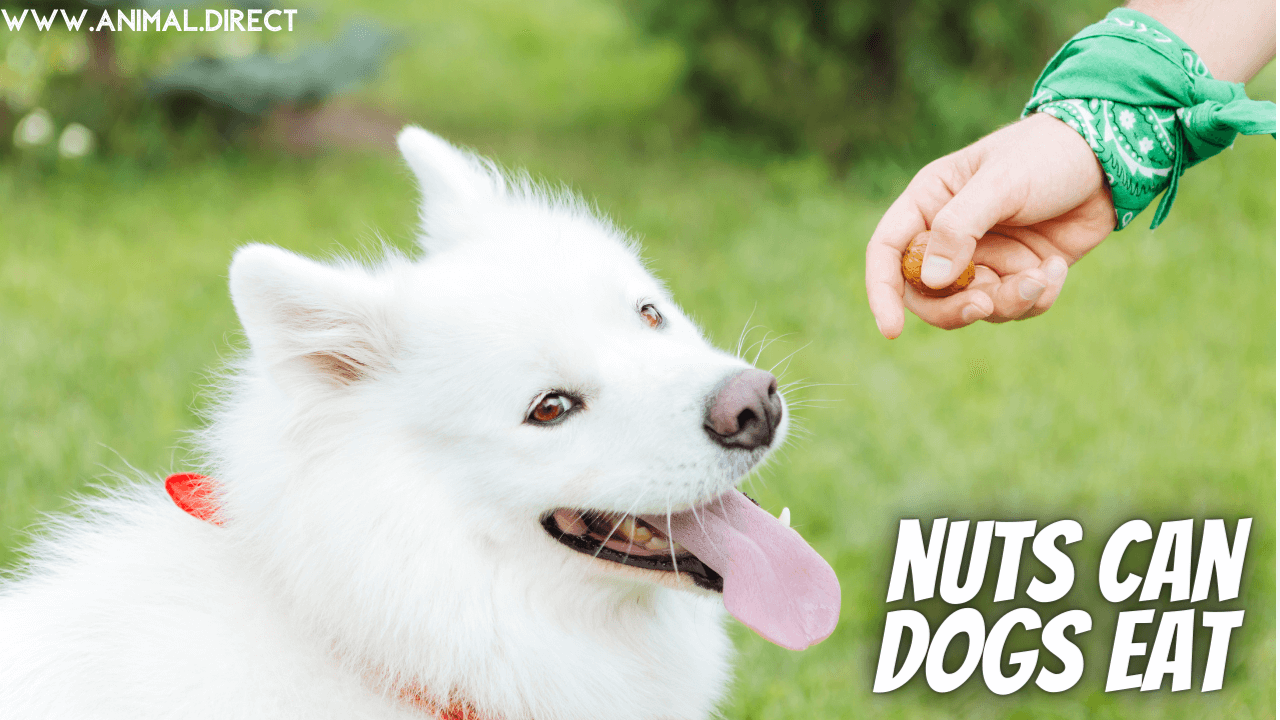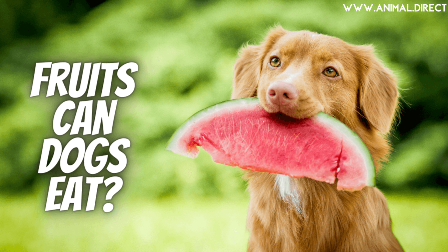Sharing is caring! When it comes to offering meals to our pets (especially dogs), most of us never heed to what food they can eat. And there is no harm doing that, right? For years, we have been sharing our plates with canine friends. They are like our babies. We eat, play, and sleep together. We are a family!
As a pet lover, it’s natural to share human food with them. Rather than dry dog food, the daily nutritional requirements for dogs are different from human beings. And to ensure the well-being and health of your pup, the owner needs to be very vigilant.
Let it be vegetables, chicken, dairy products, or other protein diets. Dogs also have limitations in their feeding plans. It’s okay if you have just offered them a piece of bread or a spoon of yogurt, leftover from your lunch box. But do you know the consequences?
Sometimes we give them human foods as a treat or add them to supplement their routine diet. But is it safe for our beloved companions to eat what we eat? The question that urged you to this article, ’What Human Food Can Dogs Eat?’ is still in your mind. How do you ensure that a bite of human food won’t affect the dog’s stomach?
In this article, we have listed human foods that dogs can eat. Our detailed guide will help you find out which toxic foods for dogs and which human food is good and bad for your pooch. After all, a balanced diet is a healthy diet.
So what are you waiting for? This article is about a dog food advisor. Let’s begin!
Fruits Can Dogs Eat
We know how beneficial fruits are for humans. Do you know that dogs also enjoy ’human treats’? Yes! If given in small quantities, dogs love eating fruits. But some fruits can negatively affect the digestive system, immunity, eyesight, and overall health of the dogs. Let’s discuss one by one!

Apples
Can Dogs Eat Apples?
Yes, dogs can eat apples. In fact, they love munching on sweet and juicy apples. Applesauce and slices of frozen apples are loved by dogs, especially as a summer treat. Although a healthy diet, some dogs are allergic to this fleshy fruit. Apples can shoot the blood sugar level in dogs suffering from diabetes. Offering smaller portions won’t hurt their health.
Are Apples Bad For Dogs?
No, they are not bad for most dogs. Ensure that you take out the seeds. Apple seeds contain bits of cyanide, which can cause choking in their throat. De-seeded, sliced or mashed versions work best for dogs.
Are Apples Good For Dogs?
Yes. Apples are rich in antioxidants and fiber. They improve the freshness of breath. They provide vitamin A & C, flavonoids, phytonutrients, potassium, and other essential minerals. Many commercial doggy-treats also include traces of fresh apples to make the meal yummy.
Avocado
Can Dogs Eat Avocado?
No, avocado is not a good suggestion for dogs. This fruit contains persin, which is a toxin. If the dog consumes avocados, persin will damage its digestive system. Persin is so poisonous that it not only affects the dog’s gastrointestinal tract, but a large seed can lead the poor soul to even death.
Is Avocado Bad For Dogs?
Yes, it’s bad for the canine friends. Prevent the exposure of avocado plants as the toxin is also present in bark, stem, leaves, seeds, and the whole fruit. Although a healthy fruit for human beings, experts say that the concentration of persin is so high that a dog’s skin can barely handle it. Consult a vet if your dog mistakenly consumes the fruit. Diarrhea and constant vomiting are apparent symptoms.
Is Avocado Good For Dogs?
Avocado can be a deadly fruit for the pups. The toxicity can lead to shortness of breath and other issues related to the lungs and chest. The deprivation of oxygen, if it persisted for a longer time, can cause it to die. So, never let your dogs go near the avocado plant.
Banana
Can Dogs Eat Bananas?
Absolutely Yes! Dogs enjoy sweetish bananas but make sure they stay away from the peels. The high concentration of fiber and low cholesterol and sodium makes bananas a perfect treat for your pal. A mashed banana mixed with dog food is a healthy diet for dogs. Beware, you have removed the peels!
Is Banana Bad For Dogs?
No! They are not bad for dogs unless given in moderation. The sugar concentration is high, which can be problematic for diabetic dogs. Although not poisonous, always remove the peels while adding them to the food bowl. Banana peels can upset the stomach and lead to blockages.
Is Banana Good For Dogs?
Bananas are good for dogs. They are stuffed with potassium, which is good for the dog’s kidneys and heart. It also provides carbohydrates, which make them healthy snacks. Remember to add small portions as an occasional treat!
Blueberries
Can Dogs Eat Blueberries?
A big YES for blueberries! The sweet and tasty fruit is a perfect treat for most dogs. Blueberries are safe to eat, and the best part is that they can be served as a whole. No need to cut, slice or mash the delicious blueberries. A healthy source of antioxidants and phytonutrients is a wonderful summertime treat.
Are Blueberries Bad For Dogs?
No, they are not a bad option. However, excess of everything is bad. Plenty of blueberries for consecutive meals can lead to gastrointestinal upset and diarrhea. Avoid blueberry pie, muffins, or other deserts due to a high concentration of sugars.
Are Blueberries Good For Dogs?
Yes, they are a rich source of vitamin C and fiber. Renowned as a superfood for dogs, blueberries help to fight cancer and repair cell damage. The nutritious fruit is safe and most preferred in the training sessions. The happiness of reward accompanied by the juicy drops of blueberries is a delight to watch.
Cantaloupe
Can Dogs Eat Cantaloupe?
Yes, cantaloupe can be consumed by your dog. Rich in vitamins A, B6, and C and minerals like potassium, folate, niacin, fiber makes it an ideal addition to your doggy’s plate. A fresh cantaloupe aids in hydration and is low in calories. Freeze the sweet fruit in a Kong toy and offer it to the dog. Just watch how happy he is!
Is Cantaloupe Bad For Dogs?
Cantaloupe is not a bad human-food for dogs. Keep in mind to remove the seeds, peels and cut them into smaller bites. A big piece can be stuck in the food pipe and result in a choking hazard. Avoid frequent use for diabetic dogs as the fruit is a sugary one.
Is Cantaloupe Good For Dogs?
Yes, cantaloupe is good for dogs only if you share it in a balanced quantity. The mineral-rich properties allow them to help in the digestion process of dogs. Another benefit of eating cantaloupe is the stimulation of the immune system. Your pup stays healthy, eating cantaloupes!
Grapes
Can Dogs Eat Grapes?
Never let your dog go near grapes or raisins. This fruit is strictly forbidden for the four-legged companions. The toxicity of the compounds present in grapes can cause serious health issues. If it eats grapes, quickly take them to the vet.
Are Grapes Bad For Dogs?
Yes. Grapes are bad for dogs. A dog that has eaten grapes is most likely to experience kidney failure, causing death. Such dogs also suffer from lethargy, tremors, vomiting, diarrhea, and increased urination. One must not keep grapes or raisins openly on the kitchen shelf.
Are Grapes Good For Dogs?
Grapes are not recommended for dogs. Avoid dogs from eating grapes, and even a small bite can lead to serious illness. A quick checkup must follow the accidental intake of grapes.
Mango
Can Dogs Eat Mango?
Yes, you can share mango slices with your dog. But make sure you offer them in a balanced quantity. Mangoes are a tasty, delicious, and most awaited summertime treat for canines. They are nutritious and serve as a perfect dog treat.
Is Mango Bad For Dogs?
Mangoes aren’t bad for dogs, but the high sugar level can cause problems in unlucky dogs. Try to give smaller bites or mashed mangoes as the pit of mango is a choking hazard. Don’t forget to remove the peel as it contains cyanide, a toxic compound (also found in apples.)
If swallowed as a whole, mangoes can cause blockages in the bowel, and your pooch might require surgery to get rid of it. As mentioned, the skin is difficult to digest and must be peeled before becoming a part of the dog’s meal.
Is Mango Good For Dogs?
Of course, they are a great add on to your dog’s diet. Vitamins A, B6, C, and E, are essential for overall well being. The high fiber content helps the constipated animals. Mangoes are rich in potassium, carotenoids, and other minerals. They are a safe and healthy option for your pup.
Strawberries
Can Dogs Eat Strawberries?
Yes, your dog can safely enjoy strawberries but in small portions. They are nutritious, healthy, and tasty for most dogs. This low-calorie fruit aids dogs to have good blood pressure, maintain cholesterol, and fight cancer. Most berries work for dogs, but some dogs avoid cranberries. Other members like salmonberries, serviceberries, marionberries, and gooseberries are not suggested for dog treats.
Are Strawberries Bad For Dogs?
The excess of strawberry treats is bad for dogs. This human food contains a protein that results in allergy in a few breeds. An irritated mouth and swollen lips show that your boy has eaten more than the required quantity. Also, cut the strawberries into tiny bites, making them easy to intake (avoiding the choking hazard.)
Are Strawberries Good For Dogs?
Yes, strawberries given in moderation make up a good fruit for dogs. They are rich in vitamin C, antioxidants, and fiber. They also contain healthy nutrients, including potassium, phosphorus, copper, iron, magnesium, and manganese.
Oranges
Can Dogs Eat Oranges?
Yes, oranges are a dog-friendly food. Oranges and other family members, including clementines, mandarin oranges, and tangerines, are amazing sources of potassium, vitamin C, and fiber. Dogs enjoy the sweet juice of fresh oranges.
Are Oranges Bad For Dogs?
No! They aren’t bad for dogs unless eaten in moderation. Oranges cause gastrointestinal upset and diarrhea in some dogs. They can increase the blood sugar level due to their sugary taste. Never offer an unpeeled orange to your dog. Although non-toxic, orange peels can get stuck in the food pipe.
Are Oranges Good For Dogs?
Yes! Oranges are an ideal fruit for dogs. They are a low-calorie and highly nutritious treat for dogs. They help in the body’s natural detoxification, and Vitamin C is safe and healthy for the skin.
Watermelon
Can Dogs Eat Watermelon?
Yes. Watermelon is a safe and healthy food for your dog. The refreshing snack avoids the risk of heatstroke in the scorching heat. The fruit is rich in vitamins A, B6, and C. It also maintains the water level in the body (as 92% is made up of water.) Dogs love the healthy, juicy red drink as a summertime treat.
Is Watermelon Bad For Dogs?
NO, you can feed watermelon to your furry babies. Make sure you remove the seeds or rinds, which can cause a choking hazard. Both rind and seeds are not good for the digestive tract and can cause abdominal pain in your dog.
Is Watermelon Good For Dogs?
Yes, it is a healthy fruit for dogs. The high concentration of potassium, along with other vitamins, boosts the nervous system. Watermelon hydrates the skin and coat while strengthening the muscles.
Pineapple
Can Dogs Eat Pineapple?
A big YES to pineapples! Pet owners can share small quantities of fresh pineapple with dogs. The luscious fruit contains lots of fiber, minerals, and vitamins. Beware of removing the tough skin and offering small bites. The yellowish core is a great snack that boosts the immunity against several diseases in dogs.
Is Pineapple Bad For Dogs?
Pineapples are not bad for dogs but remember to use fresh fruit instead of the canned version (dipped in sugary liquid.) Don’t share it without removing the hard skin, as it can cause blockages and other digestion problems. Avoid big bites, or else it will get stuck in the throat.
Is Pineapple Good For Dogs?
Pineapples are a great source of vitamin C, magnesium, iron, vitamin B6, thiamin, potassium, riboflavin, niacin, copper, manganese, and folate. The juicy fruit also aids in digestion. So overall, an occasional perfect treat to keep your dog’s tail wagging!
Cherries
Can Dogs Eat Cherries?
Yes, dogs can be fed fresh red cherries. The pulp of cherries is a delicious treat for any dog. Beware of the pits as the pups usually gulp the pits, which later causes pet owners’ problems. In case of an accident, we recommend a quick visit to a vet.
Are Cherries Bad For Dogs?
Cherries are bad in the sense that the pits are enriched with cyanide (a toxic compound) that is harmful to the body. It can block the bowel, initiate breathing issues, damage the gut wall, or even cause death.
Are Cherries Good For Dogs?
Cherries are good for dogs as long as you share it in smaller quantities. Dogs love the juicy pulp, but the pits are a big downside.
Pears
Can Dogs Eat Pears?
Yes, you can feed pears to your beloved friends. Pears are a safe option to add to the dog’s diet. Many people prepare homemade doggy treats using pears, coconut flour, coconut oil, water, and honey. It is a nutritious snack that is equally enjoyed by dogs.
Are Pears Bad For Dogs?
Pears are not a bad option if shared carefully. Pet owners must not forget to remove the seeds and core when adding to the meals. Like apples, the seeds of its delicious fruit also contain cyanide, a poisonous compound that can harm your dog’s health. For dogs having diabetes, the pear is not a recommended human food.
Are Pears Good For Dogs?
Yes, they are! Pears supply essential nutrients and minerals like fiber, copper, antioxidants, and vitamin A, C & K. It helps in blood clotting and strengthens the immunity level against different diseases.
Peaches
Can Dogs Eat Peaches?
Yes, it is fine to share peaches with your dogs. However, one must take responsibility for the dog’s health. Dogs enjoy the juicy pulp of fresh peaches. Canned peaches in the market contain high sugar levels. So it is better to use fresh fruit.
Are Peaches Bad For Dogs?
Peaches are bad only if given in large quantities. If you add peach to your pooch’s daily diet, it will cause diarrhea or upset the stomach. If the dog accidentally swallows the pit, take him to a nearby vet. The pit contains a toxic substance (cyanide), and its size exactly matches the intestine walls. Any blockage can result in immediate death.
Are Peaches Good For Dogs?
Yes, peach is a nutritious human food that dogs love to eat. It is a safe and healthy snack. Vitamins A and C, along with fiber, can do wonders for the wellbeing of dogs. It aids in battling sickness and many other infections.
Vegetables Can Dogs Eat
Like humans, dogs enjoy tasty vegetables. Some of them are safe and healthy, while researchers and vets do not suggest others. Let’s see what vegetables are good for dogs and which one is prohibited.

Asparagus
Can Dogs Eat Asparagus?
Yes, you can offer plain asparagus with your doggy. But it is not recommended as other vegetables. The reason is that cooked asparagus leaves most of its nutritional value. And if eaten raw/uncooked, asparagus can cause stomach upsets. It is hard to chew for many breeds.
Is Asparagus Bad For Dogs?
It is bad to some extent. Repeating it in your pup’s menu can result in intestinal discomfort, diarrhea, and vomiting. To prevent the hazard of choking, offer it in smaller portions. Asparagus fern is highly toxic and not safe for your pooch. If you have asparagus plants in the garden, you must be careful when your dog is there.
Are Asparagus Good For Dogs?
Plain asparagus is safe and healthy for dogs. It contains antioxidants, vitamins C, E, K, copper, folate, and a rich fiber source.
Carrots
Can Dogs Eat Carrots?
The good news for dogs, they can eat both cooked and uncooked carrots. They are safe and healthy for all breeds. Many dog vets recommend carrots, especially for the young pups, as the vegetables help teething babies relax. Dogs are more comfortable eating steamed or slightly cooked carrots. They do not harm the digestive system.
Are Carrots Bad For Dogs?
Carrots make a perfect side meal for pups. To prevent the choking hazard, make sure you have offered smaller bites.
Are Carrots Good For Dogs?
Yes, carrots are healthy and safe food for dogs. Carrots are low in calories and rich in potassium, vitamin A, and fiber. Dogs enjoy fresh carrots when given in smaller bites.
Cauliflower
Can Dogs Eat Cauliflower?
Yes, cauliflower can be shared with dogs. The white flowers on this vegetable are a great potassium source, calcium, folate, vitamin C, vitamin K, and fiber. The quantity you offer depends on the size of your dog. Pups can safely eat a couple of tablespoons, while adult and senior dogs can eat up to a full cup of cauliflower.
Is Cauliflower Bad For Dogs?
Not bad for a dog of any age, but you must not give large portions to the dogs. A frequent cauliflower treat can cause digestive problems and gas in your pup’s abdomen.
Is Cauliflower Good For Dogs?
Yes, cauliflower is good for dogs. It is safe and healthy if given in moderation. The essential nutrients and vitamins present in the vegetable support your dog’s immune system, liver, vision, blood, and muscles. Fiber avoids bowel-related problems and maintains the overall weight of dogs.
Celery
Can Dogs Eat Celery?
Dogs can eat plain celery. Celery is a healthy snack for dogs as it is made up of fiber and water. It helps in hydration in hot conditions. For dogs that get hungry very quickly, celery is a wonderful vegetable. It keeps the stomach full for a long time.
Is Celery Bad For Dogs?
Celery isn’t a bad thing to add to your dog’s plate. But make sure you have chopped it into smaller bites, or else your fast eaters will swallow and risk their lives. Small bites also help them to digest it easily.
Is Celery Good For Dogs?
Yes, it is an amazing treat for dogs. Fresh green celery is an excellent source of vitamins A, B, C, phosphorus, sodium, iron, and calcium. For teething pups, celery makes the perfect treat as it relieves the pain. It is also suggested because of its low-calorie characteristic.
Corn
Can Dogs Eat Corn?
Technically, yes! But make sure your pup has no food allergies. Corn is a healthy snack for humans as well as dogs. It provides various minerals and vitamins for your pup’s health. Both cooked and plain versions are a safe option. The phytochemicals found in corn reduce infections or sickness and stimulate the immunity level in dogs.
Is Corn Bad For Dogs?
Corn isn’t a bad add-on to your dog’s meal but make sure you offer them as an occasional treat. Also, avoid feeding it on the cob as it leads to a choking risk and even gets stuck in the intestinal tract. It can be very painful for dogs!
Is Corn Good For Dogs?
Yes, corn is a safe diet ingredient for dogs. One tablespoon every 24 hours is enough for an adult doggy. It provides carbohydrates, potassium, vitamins, linoleic acids, fiber, and protein.
Cucumbers
Can Dogs Eat Cucumbers?
Yes, dogs can be fed cucumbers but in moderate quantities. The watery vegetable is low in fat and low in calories. Cucumbers are a rich source of antioxidants. It is a perfect summer treat as it maintains the water level and keeps them fresh. The phytochemicals eliminate the smelly breath of dogs.
Are Cucumbers Bad For Dogs?
There is no harm in offering cucumbers to your pets. But always feed them small portions to avoid the choking hazard.
Are Cucumbers Good For Dogs?
Yes, cucumbers are a safe and healthy hydrating snack for dogs. Besides its anti-inflammatory benefits, cucumbers are a great snack for overweight dogs. They help in refreshing the breath and remove bad odor from the dog’s mouth.
Garlic
Can Dogs Eat Garlic?
A straight NO to garlic! You should never feed garlic to your four-legged friends. Although good for humans, professional vets recommended garlic as a deadly human food for dogs. Consumption of a high quantity of garlic can create many problems.
Is Garlic Bad For Dogs?
Yes, it isn’t nice for dogs. Garlic contains toxic chemicals known as thiosulfates. It is a highly-damaging substance that kills the RBCs and even causes anemia in some unlucky dogs.
Is Garlic Good For Dogs?
Eating garlic is not a good option for dogs. It can lead to diarrhea and vomiting in dogs and even blood transfusion (in extreme cases.) So, never let them eat garlic, not even in bits!
Mushrooms
Can Dogs Eat Mushrooms?
Never feed mushrooms to your dog. Both store-bought and wild versions of mushrooms can be deadly for them. The intake of mushrooms from your garden should be treated immediately. Take a sample of the dangerous vegetable and talk to your vet.
Are Mushrooms Bad For Dogs?
Mushrooms can be a big threat to your pup’s survival. Amanita mushrooms, along with other types, can damage the nervous system, liver and hurt the digestive tract. The toxicity is so high that any dog would hardly bear the consequences.
Are Mushrooms Good For Dogs?
Mushrooms are not good food for dogs. Some of the store-bought mushrooms are safe to eat, but we never recommend taking such a risk. Mushrooms combined with ingredients like onion and garlic are extremely dangerous.
Onions
Can Dogs Eat Onions?
No, you should not intentionally feed onions to your dogs. Consuming onions endanger your pet’s survival. The toxic compounds like the N-propyl disulfide present in onions can lead to anemia and damage the RBCs. Pet owners should also avoid supplementing dog foods with raw, cooked, roasted, or powdered onion.
Are Onions Bad For Dogs?
Yes, onions are not suitable for dogs. A dog eating onion can show pale gums, drooling, diarrhea, weakness, red or brown urine, increased heart rate, and vomiting.
Are Onions Good For Dogs?
Onion is NOT a good human food for dogs. From its stem to the leaves, the whole vegetable is harmful to them. Poisonous chemicals in onions can lead to severe health issues in dogs.
Broccoli
Can Dogs Eat Broccoli?
Yes, broccoli can be eaten by dogs. Either cooked or raw, this green vegetable is a safe and healthy snack. Make sure you have cut it into tiny bits, so the dog can easily chew and digest it.
Is Broccoli Bad For Dogs?
It is not bad food for dogs. Be careful; they don’t consume much. The juicy snack comes with isothiocyanate that can initiate abdominal problems in some breeds. Broccoli, combined with other toxic ingredients like onion, salt, or garlic, is equally bad for dogs.
Is Broccoli Good For Dogs?
Yes, broccoli is an occasional treat for dogs. Broccoli contains vitamin C and fiber (both good for health.) It is a low-fat and low-calorie snack that is loved by many dogs.
Spinach
Can Dogs Eat Spinach?
Yes, to this iron-rich vegetable. Pet owners can share small quantities of spinach with their eating partners. Either raw or cooked, both forms of spinach can be fed. However, experts say that the steamed spinach has maximum nutritious value.
Is Spinach Bad For Dogs?
Spinach isn’t a no-eat vegetable, but you must know that the leafy vegetable contains oxalate, responsible for kidney stones and bladder issues in humans; the same goes for dogs. Therefore, avoid daily consumption or offering it without washing with plenty of water.
Is Spinach Good For Dogs?
Yes, it is a good snack, and you can offer it once a week. Spinach is a rich source of vitamins A, B, C, and K. It also fulfills the essential nutritional requirements of the body. It compensates for the amount of fiber, iron, and beta carotene.
Tomatoes
Can Dogs Eat Tomatoes?
No, tomatoes are not advisable for dogs. But you can share fleshy tomatoes after removing the green leaves. Dogs enjoy ripe tomatoes as an occasional treat.
Are Tomatoes Bad For Dogs?
Tomatoes are not bad for dogs unless given in excess quantity. Green tomatoes have a toxic glycoalkaloid known as tomatine. Too much tomatine affects the heartbeat and weakens the body. Red tomatoes also contain a poisonous compound, solanine, which can lead to shortness of breath. Avoid young dogs from feeding on tomatoes (they are usually allergic.)
Are Tomatoes Good For Dogs?
Dogs can eat fresh tomatoes, but owners should avoid them. Tomatoes are a good source of beta-carotene, potassium, folate, fiber, vitamin C, and lycopene.
Potatoes
Can Dogs Eat Potatoes?
A YES for boiled and plain baked potatoes! Dogs love eating potatoes treats, particularly mashed versions. However, you should never feed them raw potatoes. Potato is safe human food, but it must be given in a balanced way.
Are Potatoes Bad For Dogs?
Generally, potatoes are not bad unless your pup eats unripe potatoes. Do not add high-fat seasonings like sour cream and bacon bits to your dog’s plate. High carbohydrate content can be a trouble maker for overweight dogs.
Are Potatoes Good For Dogs?
Yes, potatoes are a good source of carbohydrates and other nutrients, including potassium and iron. They boost energy in the dog’s body. Vitamins A, B, and C are also needed for healthy growth.
Nuts Can Dogs Eat
When it comes to sharing nuts with your fur babies, it becomes very difficult to decide which one is good enough for their small stomach to digest. Some nuts have shells, while others may contain toxic compounds that may not be safe for your pup’s health. Let’s discover if you can supplement the dog’s plate with some of the most commonly used nuts.

Almonds
Can Dogs Eat Almonds?
Yes, dogs can be fed with almonds, but it is not recommended. Unsalted and plain almonds do not harm your puppy’s health, so always offer them in small quantities. Almonds are a healthy diet for humans, but they may cause digestion issues in dogs’ cases.
Are Almonds Bad For Dogs?
Although non-toxic, almonds may lead to loss of appetite, diarrhea, vomiting, and other gas problems. The high-fat content can be life-threatening as they affect obesity and pancreatitis in dogs.
Are Almonds Good For Dogs?
Dogs love eating these nuts, and you can use them as an occasional treat. Almonds are a rich source of proteins, vitamin E, healthy fats, and magnesium.
Cashews
Can Dogs Eat Cashews?
No, you should never offer cashews to your dogs. Although right in carbohydrates and other minerals, cashews can be hard to digest. Some dogs can be fed with unsalted and plain and roasted cashews. They are healthy and safe human food, but you must limit the supply.
Are Cashews Bad For Dogs?
Cashews aren’t a good treat for dogs. They are high caloric and fat-containing diets. Excess of cashews is harmful to the dog’s wellbeing. They may lead to pancreatitis and digestion issues. Avoid mix dry fruits or salted versions to keep their tail wagging.
Are Cashews Good For Dogs?
Most vets don’t suggest cashews. They can increase weight and lead to severe health issues. One to two nuts are fine, but avoid too much supply in their plates.
Peanut Butter
Can Dogs Eat Peanut Butter?
One of the most favorite treats that every dog falls in love with, peanut butter is a healthy diet and safe for your friend’s health. Stuff it inside a Kong toy, and see how much he enjoys.
Is Peanut Butter Bad For Dogs?
Peanut butter is not a bad option for dogs unless your boy is suffering from a peanut allergy. Mixed versions with sugar and salt are not advisable by pet health professionals.
Is Peanut Butter Good For Dogs?
Yes, it is a yummy diet for dogs. Peanut butter contains niacin, protein, and vitamins B and E. The market is packed with artificial flavors that include unhealthy sweeteners that may hurt your pooch. Beware of these brands!
Peanuts
Can Dogs Eat Peanuts?
Yes, with limitations, dogs can be fed with peanuts. Roasted, unsalted, and raw peanuts are all safe treats for them. The best way is to feed them in minute quantities.
Are Peanuts Bad For Dogs?
Peanuts aren’t bad for dogs, but one must not share the whole nut along with the shell. Consuming too many peanuts can cause pancreatitis. There is a threat of salt poisoning if dogs accidentally intake salted peanuts.
Are Peanuts Good For Dogs?
Yes, they are good but still not suggested by vets. The crispy nuts contain healthy fats, niacin, vitamin B-6, vitamin E, and proteins. Peanut butter is another healthy treat cherished by dogs.
Pistachios
Can Dogs Eat Pistachios?
Dog owners should NEVER give pistachios to their fur-babies. Even if the dogs love munching on these nuts, don’t go overboard. Offer in small quantities, maybe one to two nuts every day.
Are Pistachios Bad For Dogs?
Yes, pistachio can lead to pistachio poisoning. Eating excess pistachio can be dangerous as it can cause diarrhea, vomiting, and pain in the tummies.
Are Pistachios Good For Dogs?
Although non-toxic, pistachios aren’t a good add-on to your pup’s eating regime. The high level of fats can badly damage the liver. Beware that your dog does not eat them with the shell. Pistachios with shells are a choking hazard.
Other Human Foods Can Dogs Eat
It is natural for the pet owners to share the food with their beloved companions. Some human foods are good for their health, while others can be highly toxic (some can even lead to death.) Take a look at some of the most common human foods dogs can eat.
.png)
Bread
Can Dogs Eat Bread?
Yes, dogs can definitely eat bread. It is safe for a dog’s health, but there are no such healthy nutrients that can do wonders for your pooch’s wellbeing.
Is bread Bad For Dogs?
Bread is not a bad canine diet but make sure to give in smaller bites. Raw bread dough can be problematic, so avoid it. Once a week is enough to keep their small stomachs working!
Is bread Good For Dogs?
Whole grain bread and plain white bread is good human food you can share with pets. Make sure that the bread isn’t stuffed with raisins, which can be dangerous. Bread seasonings like toppings and flavors make it a perfect treat.
Cheese
Can Dogs Eat Cheese?
Cheese is a yummy treat for dogs. Although loved by most dogs, cheese is not a healthy diet. Vets recommend low-fat and low-sodium types of cheese for dogs. It also helps in the training sessions.
Is Cheese Bad For Dogs?
Cheese does not harm your pet’s health, but there are a few precautionary measures when offering a slice of cheese. Limit the supply of cheese as the high lactose content can create digestive issues in some dogs. This can, later, result in diarrhea and stomach pain.
Is Cheese Good For Dogs?
Cheese is a perfect snack for the training sessions. It is a great source of calcium and proteins. Cottage and mozzarella cheese can be fed to dogs in moderation.
Cinnamon
Can Dogs Eat Cinnamon?
Yes, there is no problem sharing cinnamon with dogs. Cinnamon is an antibacterial, anti-inflammatory, and non-toxic add-on to your doggy’s plate. Eating it frequently can be hazardous for the stomach and mouth. So limit the use of this human food for dogs.
Is Cinnamon Bad For Dogs?
Excess cinnamon can hurt your dog’s digestive system. The spice, if inhaled, can create breathing problems or lead to continuous coughing. Human foods that include cinnamon as its major ingredient can equally affect your pup’s health.
Is Cinnamon Good For Dogs?
It is good for diabetic dogs. Cinnamon regulates the blood pressure in dogs. But make sure you don’t use it too much. Half a spoon is enough for most dogs (that too twice a month maximum.)
Eggs
Can Dogs Eat Eggs?
Yes, eggs are an ideal snack for dogs. They are safe and healthy when offered in cooked form. Eggs are rich in minerals, proteins, vitamins, and other nutrients essential for your pup’s health. Raw eggs aren’t suggested for dogs.
Are Eggs Bad For Dogs?
No, they do not harm unless given in a balanced way. If your dog has weight issues, you might have to abandon the supply of cooked eggs. The vet’s suggestion can be handy in this regard. Raw eggs can be harmful as the bacteria known as Salmonella can be dispersed from dogs to owners.
Are Eggs Good For Dogs?
Boiled eggs make a perfect treat for your pooch. Fried versions might increase the cholesterol level, so avoid the unhealthy method of sharing eggs.
Honey
Can Dogs Eat Honey?
Yes, honey is a safe option for dogs. It is non-toxic human food that is enjoyed by many dogs, mainly due to its sugary taste. Avoid sharing this treat with puppies, but young dogs can consume honey with limitations.
Is Honey Bad For Dogs?
Too much honey can be a bad decision for dogs. Healthy and adult dogs have no issues, but weak immune systems threaten younger babies due to botulism spores. Dogs that frequently eat honey can show diarrhea symptoms, vomiting, tooth decay, high blood sugar, and obesity.
Is Honey Good For Dogs?
Honey is a good source of vitamins A, B, C, D, and E. It also gives minerals like potassium, calcium, and manganese for the growth of dogs. An occasional treat is good, but repeated attempts can have adverse effects on your pet’s wellness.
Ice cream
Can Dogs Eat Ice cream?
Ice creams should not be shared with dogs. Ice creams are just a fantasy for humans, and sharing it with the canines can be dangerous for their health. Dogs love to lick the sweet and icy human food, but it isn’t a good option.
Is Icecream Bad For Dogs?
Yes, it is an unhealthy choice for dogs. The sugar and fat content can be harmful to lactose-intolerant dogs. All flavors are considered bad, but the chocolate and rain flavors are the worst. A dog eating ice cream can expect an upset tummy.
Is Icecream Good For Dogs?
No, you should shun offering dogs with ice cream. The chilled dessert contains xylitol, which is not safe for the dog’s health. A few tablespoons of yogurt are a better option than ice cream.
Pickles
Can Dogs Eat Pickles?
No, feeding them pickles is not a good idea; however, if it gulps a small piece from your plate, it will be okay. The toxicity level is too much for the dog’s body. So it is not recommended in any form.
Are Pickles Bad For Dogs?
Yes, pickles can hurt dogs. The major ingredients in pickles are garlic and onion (both toxic for the canine diet.) The sugar and salt contents are pretty higher than other human foods, and it becomes hard to digest for their little stomachs.
Are Pickles Good For Dogs?
Pickles are not good for dogs. The ingredients of all pickles are completely soaked in vinegar, which is strictly forbidden for dogs. Even the pickle juice can damage the internal organs of your furry boy.
Popcorn
Can Dogs Eat Popcorn?
Yes, dogs can enjoy the crisp of popcorn, but one should not feed them very often. Make sure there is not much salt added and avoid the exposure of popcorn bags. If your dog eats the bag, it will cause suffocation and may lead to death.
Is Popcorn Bad For Dogs?
Popcorn can be a choking hazard if shred in excess quantity. The butter and salt flavored popcorns are bad for their stomach. The oils are a threat to the dog’s fitness. If a piece of popcorn stucks in the teeth of your dog, immediately ask a vet for the cure.
Is Popcorn Good For Dogs?
Plain popcorn is good for dogs. Air-popped human food is a great phosphorus source, manganese, zinc, magnesium, fiber, and carbohydrates.
Rice
Can Dogs Eat Rice?
There is no harm in sharing half a bowl of boiled rice with your dog. Almost all breeds love this human food. Pet owners rely on cooked rice for the healthy growth of their pooch.
Is Rice Bad For Dogs?
No, it is a safe and healthy addition to your dog’s meal. Overdoing the supply can create problems, but no studies have proved the negative effects of rice yet.
Is Rice Good For Dogs?
White rice, Brown rice, plain or cooked rice are equally good for dogs. Rice helps in digestion and removes tummy pain. There are lots of recipes that include white, boiled rice mixed with turkey or chicken bites. They make up a perfect treat for dogs.
Shrimp
Can Dogs Eat Shrimp?
Cooked shrimp is a high quality omega 3 fatty acids and a safe diet for dogs. Shrimp is a nutrient-rich and healthy snack that can do wonders for the overall wellbeing of your pup. Moreover, dogs also enjoy eating shrimps.
Is Shrimp Bad For Dogs?
Generally, shrimp is not a bad option for dogs. But raw shrimp can be harmful. Bacteria present in the raw shrimp can cause illness in dogs. To avoid the choking hazard, remember to remove the shell from this human food.
Are Shrimp Good For Dogs?
Yes, shrimp is a great source of omega 3, vitamins, and minerals needed for the dog’s growth. The protein content is a plus to the canine diet.
Turkey
Can Dogs Eat Turkey?
Dogs can safely eat plain turkey as an animal protein, but turkey bones are not advisable. The sharp bones can damage the intestinal tract and are a choking hazard for pups.
Is Turkey Bad For Dogs?
It is bad to some extent. Turkey bones lodged in the dog’s stomach, or esophagus is hard to tackle. The small bones can get stuck in the jaws and lead to blockages of the intestinal tract.
Is Turkey Good For Dogs?
Turkey must not be shared with dogs. This human food, combined with other harmful ingredients like garlic and onion, can be a real threat to the dog’s life. However, remove the skin and bones and offer them as an occasional treat. They will happily accept.
Yogurt
Can Dogs Eat Yogurt?
Yes, yogurt is a safe and healthy treat for dogs. Beware of this dairy diet; lactose intolerant dogs must not be offered with yogurt.
Is Yogurt Bad For Dogs?
Yogurt is not a bad idea to add to your baby’s plate. Unflavored and unsweetened yogurt is safe. Greek yogurt is free from bacteria, and low-fat content makes it a great supplement.
Is Yogurt Good For Dogs?
Yogurt makes a perfect choice for dogs of all ages. It is rich in calcium and proteins, essential for muscle strength and strong bones. The probiotics found in yogurt boost the immunity level and allow the food to digest easily.
Wrap-up!
Dogs can eat most of the human foods offered by their owners. However, some of them are good for their wellbeing, while others can damage health. A pro tip is to supplement your pet’s diet with moderation. A lavish supply of human food can be dangerous.
The digestive system of dogs is not as strong as humans. Be watchful of what he likes or not; look for allergies and tummy pains. The food you share with them also varies from one dog to another. Overall, it is a sign of love and care when you see your baby eating the same food as you do. In case of any accident, you should quickly take them to your veterinarian.
We hope that our detailed guide on ’Beware What Human Food Can Dogs Eat: Bad or Good’ will help you while feeding the canine friends.
Best of Luck!



.png)




